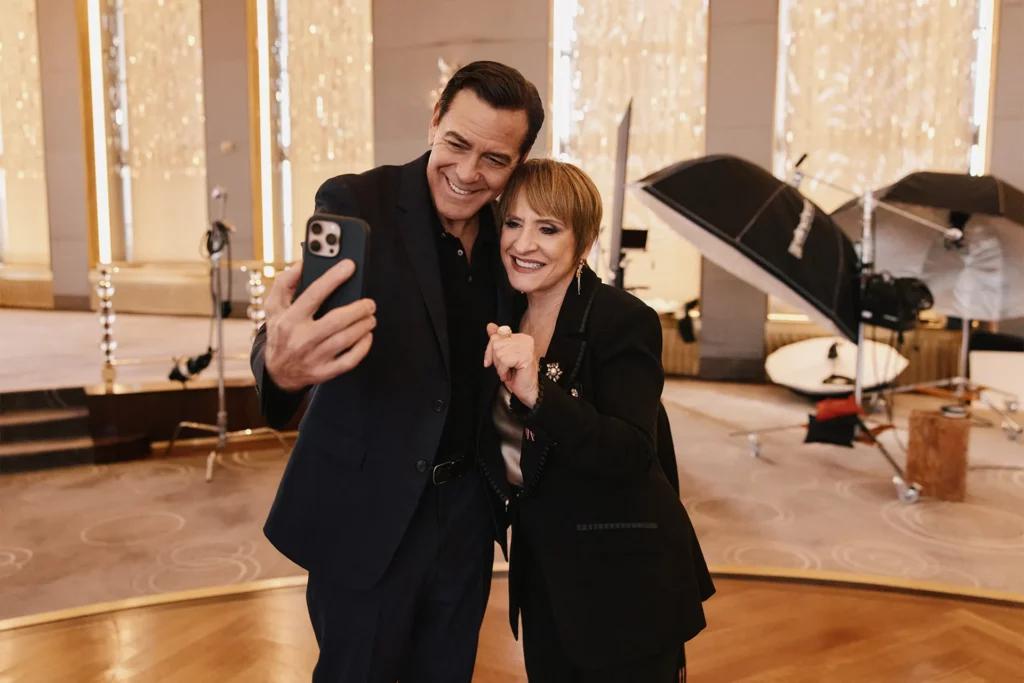
George Clooney and Patti LuPone Sound the Alarm on Broadway, America, and the Battle for the Soul of Art
On a rare afternoon together, two giants — George Clooney and Patti LuPone — sat down not just to celebrate the theater, but to sound a warning.
Clooney, fresh off his Broadway debut as Edward R. Murrow in Good Night, and Good Luck, perched atop a ladder during a photo shoot, while LuPone, ever the guardian, jokingly pleaded, “Be careful, George — we need you.” It was a lighthearted moment, but the gravity of what they discussed afterward made it clear: this wasn’t just about stagecraft. It was about survival — for democracy, for truth, and for art itself.
LuPone, with her trademark fire, praised Clooney for not just his performance, but his bravery. “You command the stage,” she told him, holding back tears as Clooney confessed he had seen her iconic performances in Evita and Sunset Boulevard, moments that changed the air in the theater itself. “You levitate the audience,” he said.
But admiration quickly turned into alarm. Clooney and LuPone both admitted to being deeply worried about the state of America — a nation losing its grasp on truth, a culture spiraling into cruelty instead of compassion. “We’re only getting stupider,” LuPone lamented. “We need inspiration again.”
For Clooney, returning to the stage wasn’t just a career move. It was a mission. He described Good Night, and Good Luck as a desperate reminder of a time when journalists stood up to tyranny instead of amplifying it. “Edward R. Murrow was us at our best,” Clooney said, speaking about the legendary broadcaster’s fearless reporting during World War II and McCarthy’s reign of fear.
LuPone echoed that urgency. “Art should be the voice before it’s silenced,” she said, pleading for playwrights to rise to the moment and help reeducate a fractured nation. “We are in a very precarious position,” she warned.
Their conversation wasn’t just about the past — it was about the now. Clooney did not hold back when discussing the failures of modern media, political cowardice, or the dangerous flirtations with authoritarianism happening in plain sight. He pointed a finger at figures like Elon Musk, questioning the influence of unchecked billionaires. “Isn’t he destroying the government?” LuPone asked bluntly, refusing to soften her words.
Still, amid the darkness, Clooney held onto a glimmer of hope. Drawing on history, he reminded LuPone — and himself — that America has faced fire before. The assassinations of Bobby Kennedy and Martin Luther King. The chaos of 1968. The wars. The demagogues. “We’ve done this before,” he insisted. “And we’ll find our better angels again.”
It was a conversation drenched in urgency, wisdom, and raw humanity — a reminder that when the world stumbles, it’s the artists, the truth-tellers, and the brave few who have always stood up first. And in Clooney and LuPone, the battle for that better world still has two of its fiercest warriors.